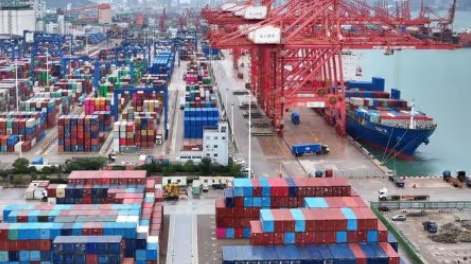By Joe Cash
BEIJING- As Donald Trump steps up his tariff threats against China, Beijing is moving to beat the next US president to the punch with its own restrictions and get Washington to the negotiating table ahead of a full-blown trade war, analysts say.
Armed with the lessons of the last trade war during Trump’s first term, China is seeking to amass bargaining chips to kick off talks with a new US administration on contentious aspects of bilateral ties, including trade and investment, and science and technology. It is also concerned about the harmful effects of additional tariffs on its already fragile economy.
This week, China launched a probe into US chip giant Nvidia over what it claimed were suspected antitrust violations, which follows its ban on US bound exports of rare minerals.
“We have to look at this as the opening bid in what will likely ultimately turn into a negotiation with the US rather than just an imposition of tariffs and everyone walks away,” HSBC’s Chief Asia Economist Fred Neumann said.
China is better prepared to deal with almost any tariffs, short of an “Armageddon announcement” of a 60 percent tariff on all Chinese goods, said George Magnus, research associate at Oxford University’s China Centre.
The world’s second-largest economy now globally dominates sectors such as electric vehicles and green energy, and has less need for the Boeing jets and large gasoline-fuelled cars it bought back in 2017, having found substitutes such as Airbus airplanes and its own Comac C919.
But China is far from self-sufficient.
A new trade war with the world’s biggest economy would still hurt China more, analysts say, as Washington can levy ever-larger import duties on its goods and further rip China from its supply chains.
China still needs to import strategic materials from the US such as advanced microchips and other high-tech equipment and counts on US consumers to buy its goods, given an increasingly pessimistic global trade outlook and weak domestic consumer demand.
Beijing wants to sit down with Trump before he places more curbs on US high-tech exports and to secure the renewal of the US China Science and Technology Agreement, said Alicia Garcia-Herrero, chief economist for the Asia Pacific at Natixis.
The agreement, which enables scientific collaboration between the two countries, lapsed in August and negotiations over its renewal are unlikely to be completed before Trump’s Jan. 20 inauguration. – Reuters





